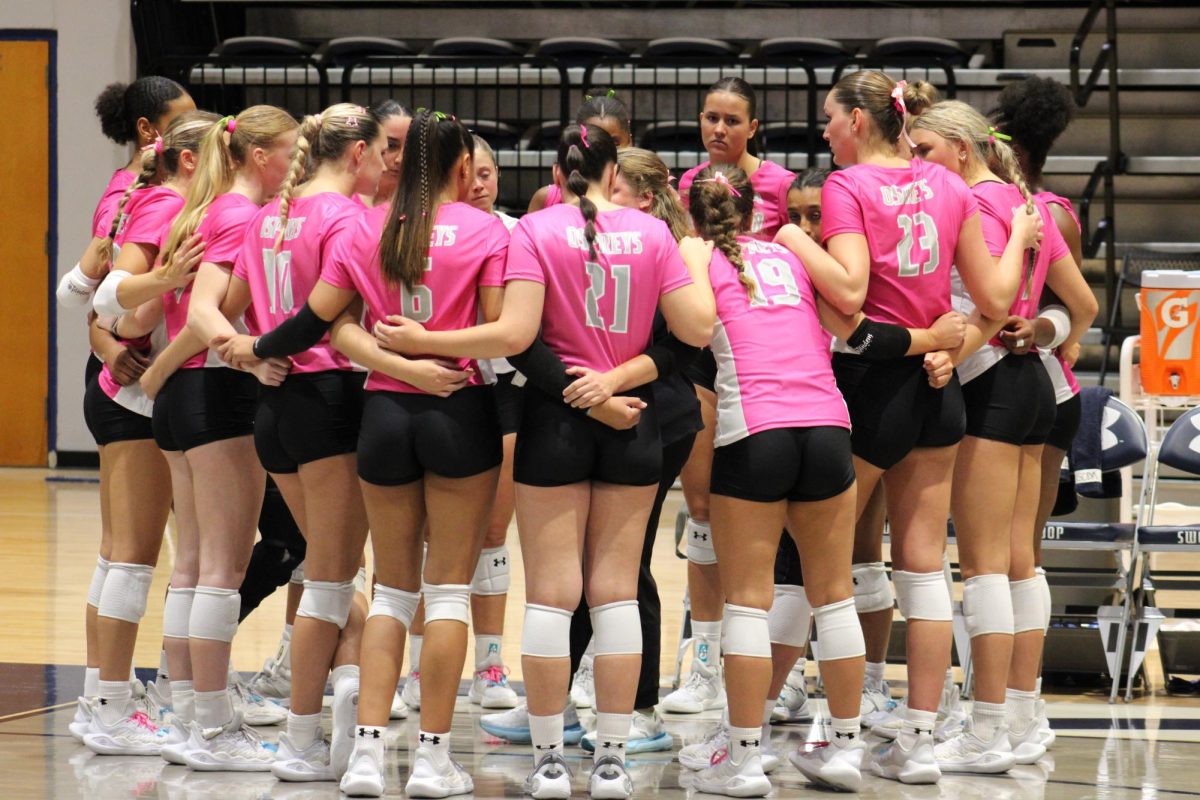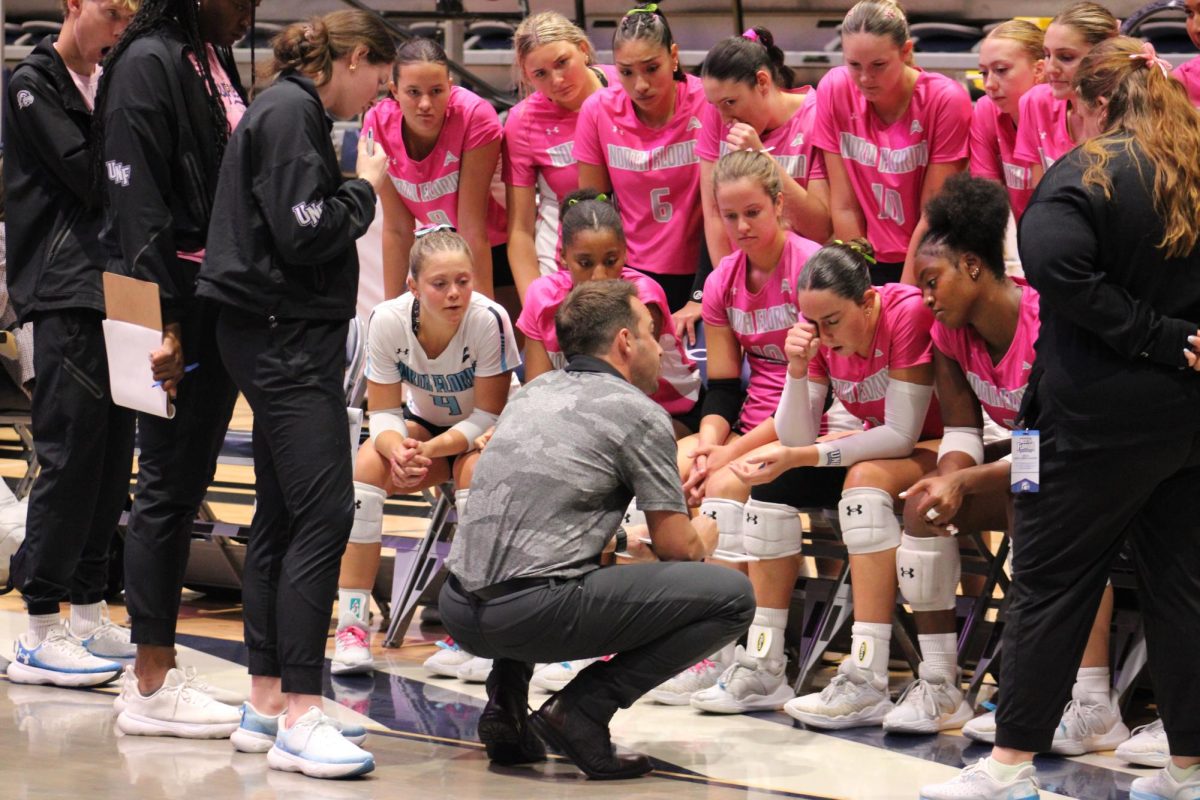
It’s a familiar story. The big wigs are throwing their weight behind politicians, capitalizing on their money and power, leaving the rest of us in the dust. This time, though, it’s happening in the world of higher education.
If you’ve been following the Spinnaker over the past month, you’ve seen numerous stories covering the developments in Tallahassee on the issue of student representation on the Board of Governors.
To sum it up, the Florida Student Association, which consists of 10 of the 11 state university student body presidents, elects a representative to sit on the Board of Governors to represent the state university students of Florida. There’s a bill out there (HB 931) that would take that power away from the FSA and give it to Gov. Rick Scott.
Many, including UNF Student Body President Matt Brockelman and UNF Vice President of Governmental Affairs Janet Owen thought it would get shot down before it made it anywhere near the legislative session. The session started Feb. 2, and it’s still on the table.
At the House Education committee meeting Feb. 7, the committee passed the bill with only two dissenters, showing their bias for the “big two” state universities, which have recently teamed in support of the bill.
Just before the Education Innovation subcommittee, where the bill passed by a slim 8-7 margin, the University of Florida’s student body president co-wrote a letter with Florida State University’s student body president to the legislature urging them to pass the bill.
Florida State University, the only state university not a member of the FSA, has been behind the bill since the beginning, claiming they did not want to participate in pay to play politics. This year, it cost universities $8,500 for FSA membership, leading to FSU’s hesitancy to join.
But as the Spinnaker previously reported, Tallahassee’s biggest university pays lobbyist Sean Pittman an aggregated total of $45,000 a year to lobby on behalf of its student government. That means FSU students, as part of their A&S fees, pay the former FSA chair out of their pockets to lobby on FSU’s behalf. That’s not even to mention the other lobbyists who work on behalf of the university itself.
The University of Florida is a due-paying member of FSA and still pays an aggregated total of $30,000 to lobbyists. UNF does not pay lobbyists outside of its own staff.
So this is not about money. But even if it was, the FSA has bent over backward to accommodate the wishes of Florida higher education’s own version of the 1 percent, eliminating dues from membership requirements.
After a new set of by-laws was almost unanimously passed this month, every state university student body president is now a de-facto member of the FSA Board of Directors, and therefore eligible to be elected chair and represent students on the Board of Governors, said FSA chair Michael Long. There are no fees. Further, if a due structure is to be implemented, the board would have to unanimously approve it, he said.
FSA has eliminated a professional staff member or management consulting firm, which helped organize meetings with legislators and performed other organizational duties from their budget, putting that burden back on the 11 student body presidents. Long also hopes to use fundraising to cover travel and other meeting costs going forward.
Despite all this, legislators have passed this bill yet again, emphatically. And according to Long, FSU and now UF’s lobbyists are pushing hard for it to pass.
“This is not an issue about the merit of HB 931, it’s not about a democratic representative process, it’s about Florida State University and the University of Florida wanting more appointments to the board of governors,” he said.
FSA is an organization that holds value in Tallahassee in numbers alone. It is designed to represent all the students of the state, and by joining all the student body presidents, it is in effect pooling the voice of the students and the resources of the schools.
No lobbyist, no matter how much money they are paid, can speak on behalf of 11 universities. That is a fact that cannot be argued. If a school wants to dish out thousands from students’ pockets to fund lobbyists to speak in Tallahassee strictly for their specific student body, more power to them. But to say they’d rather pay lobbyists and take the power out of students’ hands than join the now essentially free FSA is preposterous.
FSU and UF just want to have the chance to have their cake and eat it too. They want to use their own lobbyists to fight for themselves without the rest of the state dragging them down, and still have the opportunity to have a representative on the BOG. Without the FSA, every school would have to find a lobbyist if they wanted a voice at all, but not every school has that kind of money.
It’s not incredibly far-fetched to imagine FSU and UF are teaming up to give Scott our power in hopes of being awarded a spot on the BOG more often than not. What makes no sense is that the student bodies that call themselves Gators and Seminoles want to give the voice of students away to the governor.
According to Long, around 100 students from FSU were at the capitol to support this bill, among others. But when he approached a group of 20 or so of them, and told them exactly what this bill would do to students’ voice, they were taken aback. They didn’t know what they were supporting.
It seems that students, including student body presidents at FSU and UF, have been duped into thinking this bill is best for students. They are even mobilized in Tallahassee to support it.
This bill will take our voice away. It will give Scott more power in an industry that, frankly, he knows little about. It will potentially allow the big dogs of the state, FSU and UF, to further push their own agendas without giving smaller schools like UNF a chance to speak for itself.
The FSA has eliminated the only semi-legitimate excuse for legislators to reasonably pass this bill, but they’re going through with it anyway. Students must act now before we all get hoodwinked out of a voice.











